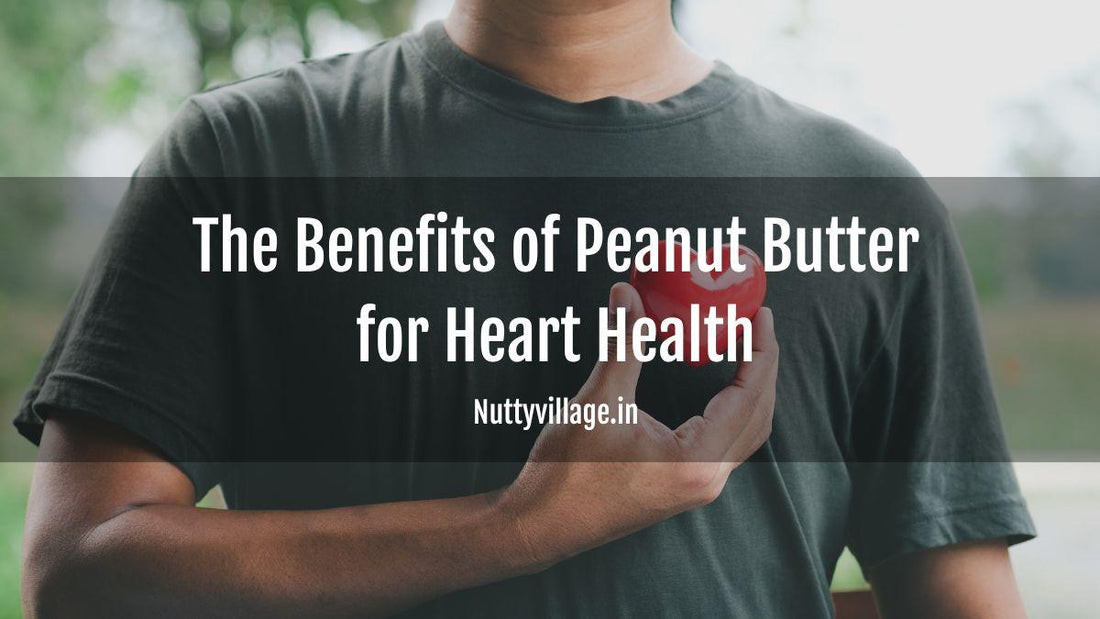
The Benefits of Peanut Butter for Heart Health
SHAILENDRA YADAVShare
How Peanut Butter Supports a Healthy Heart
When it comes to promoting heart health, most people think of leafy greens, oily fish, and whole grains. However, an unlikely ally in the quest for a strong and healthy cardiovascular system might already be sitting in your pantry — peanut butter. This creamy, nutty delight isn’t just a delicious treat; it’s a powerhouse of heart-healthy nutrients and antioxidants.
From its abundance of “good” fats to its essential micronutrients, peanut butter can be an excellent addition to your heart-friendly diet. So let’s explore how this beloved spread contributes to cardiovascular well-being — one spoonful at a time.
Why Heart Health Matters
Your heart acts as the body’s primary pump, circulating oxygen- and nutrient-rich blood throughout your system. Cardiovascular health is crucial for overall wellness and longevity, as heart disease remains the world’s leading cause of death.
Fortunately, many heart disease risk factors are within our control. Here's how to start prioritizing heart health:
- Maintain a Balanced Diet: Emphasize whole foods like fruits, vegetables, whole grains, lean protein, and healthy fats like peanut butter.
- Stay Physically Active: Aim for at least 150 minutes of moderate aerobic exercise per week.
- Manage Stress: Practice mindfulness, yoga, or other relaxation techniques to keep stress in check.
5 Heart-Healthy Benefits of Peanut Butter
1. Lowers LDL (Bad) Cholesterol
Peanut butter contains monounsaturated and polyunsaturated fats that help reduce LDL cholesterol — a major contributor to clogged arteries and heart disease.
2. Helps Regulate Blood Pressure
Rich in potassium and magnesium, peanut butter helps maintain normal blood pressure by easing tension in blood vessels and balancing sodium levels.
3. Reduces Inflammation
The antioxidants and healthy fats in peanuts help reduce inflammation, a key factor in the development of heart disease.
4. Supports Heart Muscle Function
Peanut butter provides essential nutrients like protein, vitamin B6, and magnesium that aid in the maintenance and function of heart muscle tissue.
5. Provides Dietary Fiber
Peanut butter contains fiber, which helps manage cholesterol levels and supports weight control — both important for heart health.
Conclusion
Peanut butter is more than just a tasty spread — it’s a heart-loving superfood packed with nutrients that can support your cardiovascular health. When enjoyed in moderation and as part of a balanced diet, it’s a simple and satisfying way to nourish your heart.
Choose natural peanut butter options like Nutty Village Peanut Butter, which are free from added sugars, palm oil, and preservatives — ensuring maximum health benefits with every spoonful.
Yes. Peanut butter contains potassium and magnesium, which help regulate blood pressure and promote healthy circulation.
Peanuts are rich in antioxidants like vitamin E and resveratrol. These compounds combat oxidative stress, reducing inflammation and protecting blood vessels.
Yes. It’s a source of protein, vitamin B6, and magnesium, which are crucial for repairing and supporting heart muscle function.
Choose natural varieties with no added sugar, salt, or hydrogenated oils. Nutty Village Peanut Butter is a great option, crafted from desi peanuts without preservatives or palm oil.







